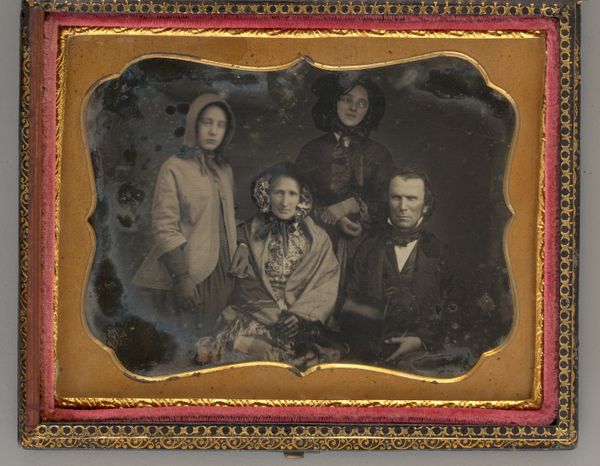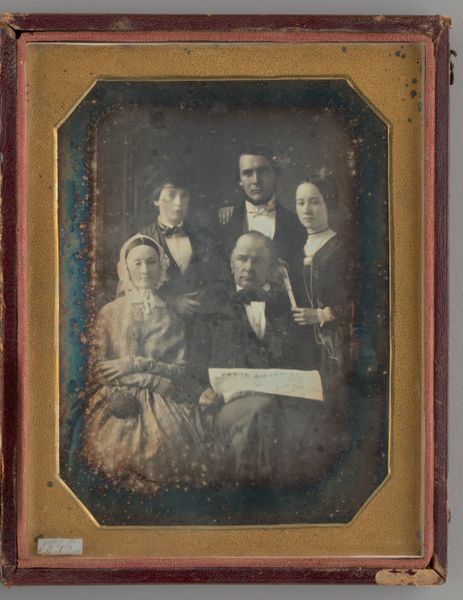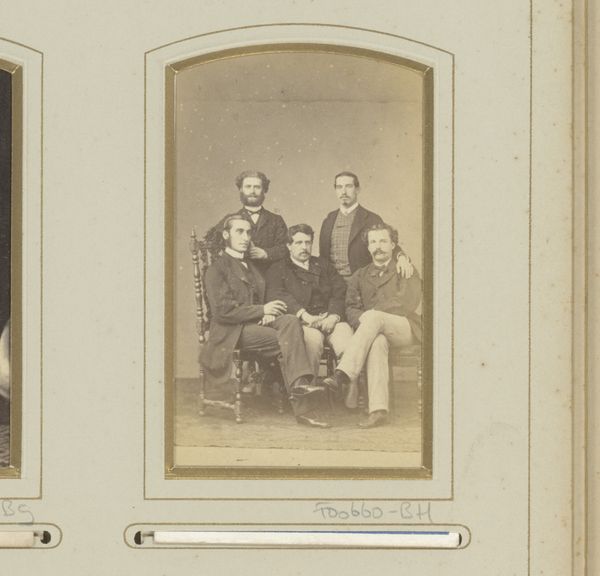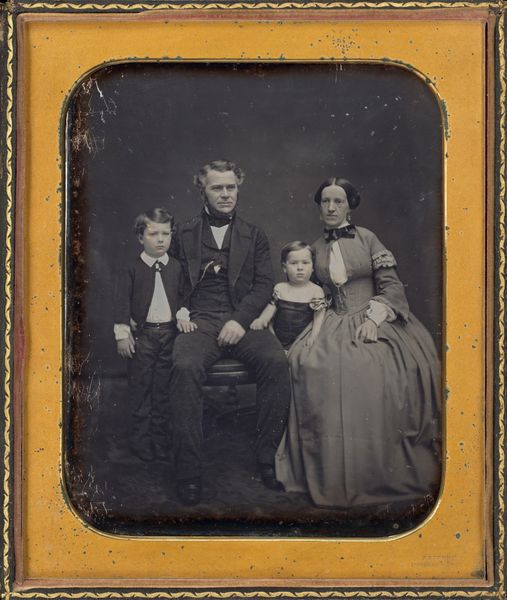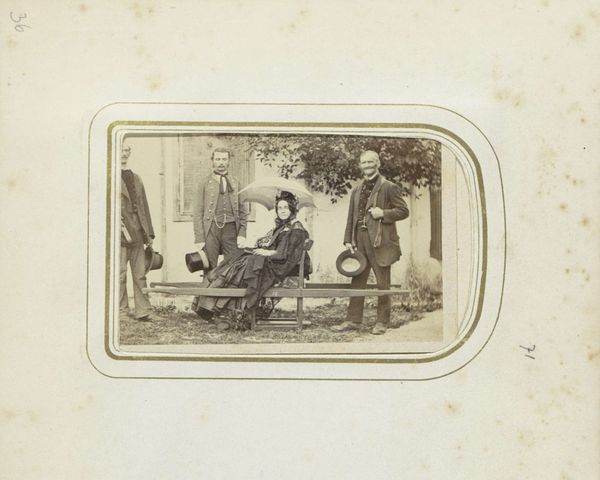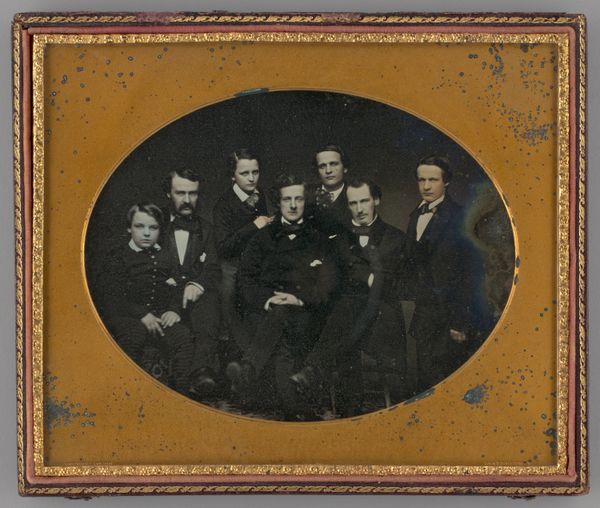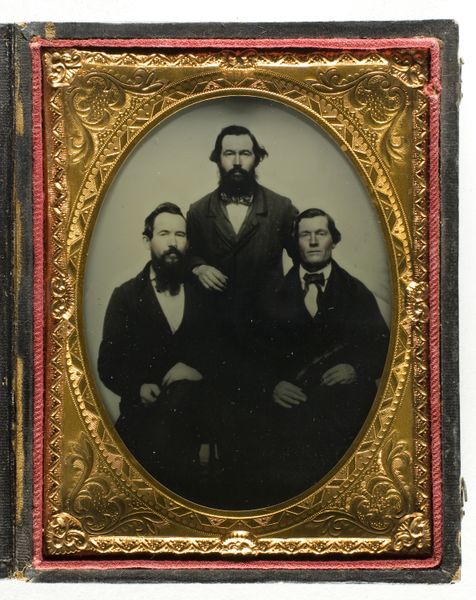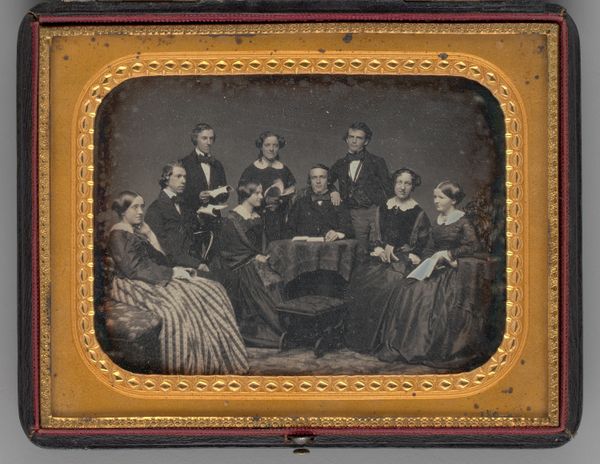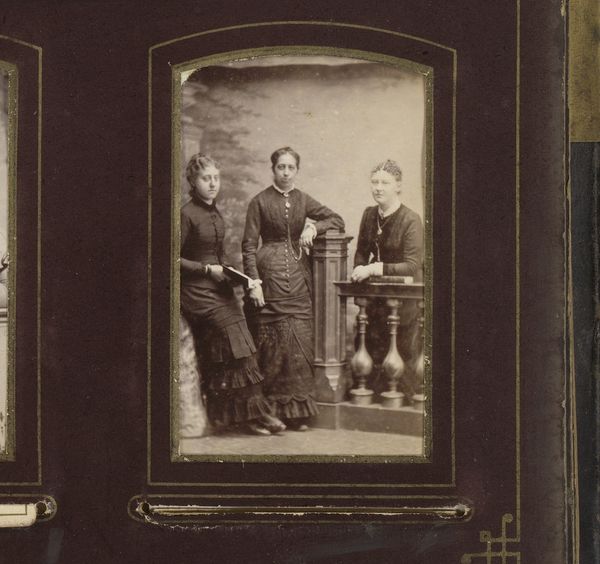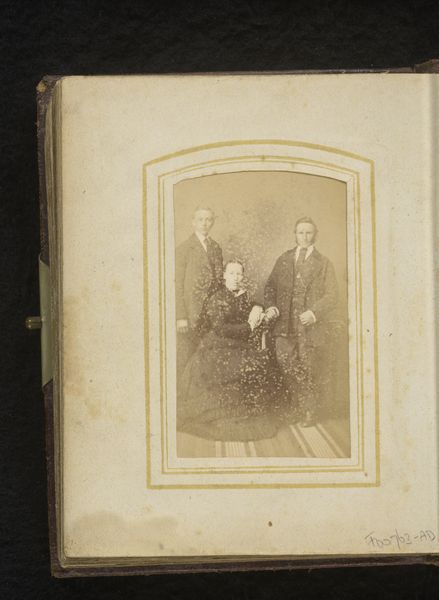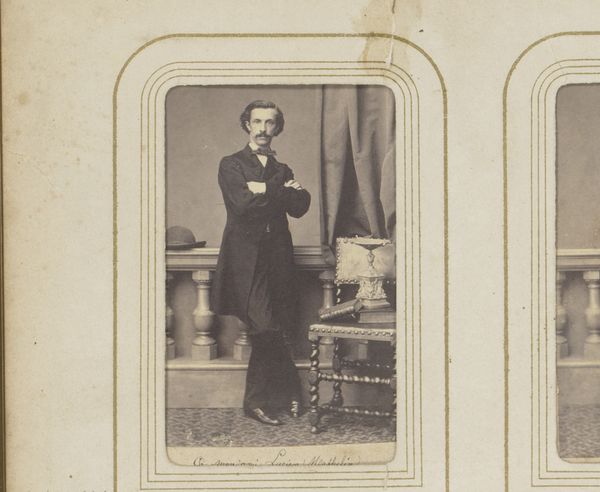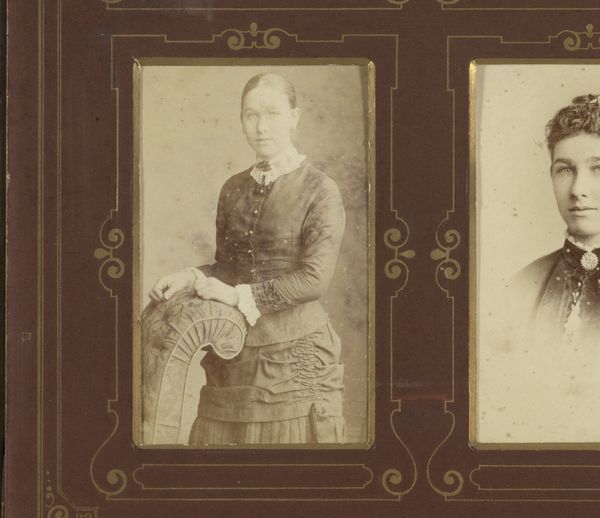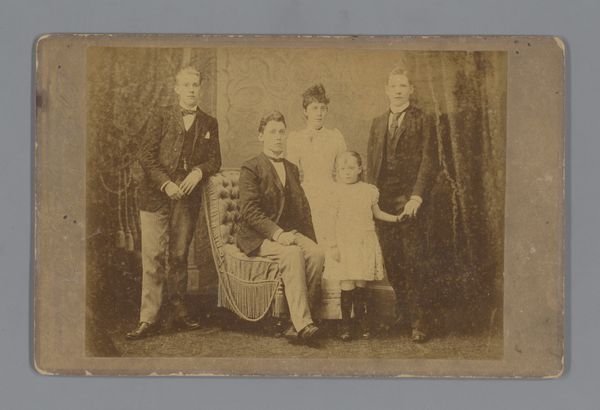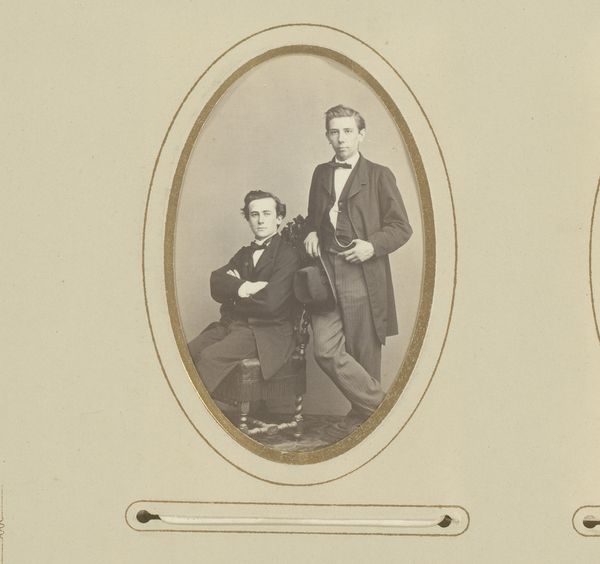
daguerreotype, photography
#
portrait
#
daguerreotype
#
photography
#
group-portraits
#
realism
Dimensions: 16.4 × 21.5 cm (6 1/2 × 8 1/2 in., plate); 23 × 35.6 × 1.5 cm (open case); 23 × 17.8 × 2.4 cm (case)
Copyright: Public Domain
Curator: This compelling image is an untitled daguerreotype, believed to have been captured around 1857. The artwork is located here at The Art Institute of Chicago and is a group portrait of three men and one woman, the photographer remains anonymous. What are your first impressions? Editor: It strikes me as a very serious and posed tableau. The composition is incredibly balanced, yet the somber tones almost give off an unnerving mood—as though peering into the Victorian era's stoicism. Curator: Absolutely. Structurally, the grouping adheres to a clear hierarchical arrangement; a seated female figure centrally positioned, flanked by seated male figures. There’s an implied narrative in this arrangement which is, of course, deliberate. It begs questions of kinship, social standing. What symbolic cues are apparent to you? Editor: The way the sitters are posed suggests a consciousness of status and gender. The daguerreotype itself was a fairly democratic medium. It made portraiture accessible, yes, but what work and materials went into making such a formal picture? Silvered copper plates, polishing, coating with light-sensitive chemicals…the process reveals a kind of early industrial pursuit for self representation, right? Curator: Indeed. The material reality behind the shimmering image reveals 19th-century alchemy merging chemistry, light, and ambition, it's fascinating! Note how the symmetry also lends an air of formality. Editor: Formality which may have masked so much for the people in it: what's being omitted versus being portrayed. Who funded the shot? Curator: It’s hard to ignore that it humanizes the image and freezes this small, intimate social constellation in time. How fragile and lovely is it that a photo has allowed us to glimpse into this specific period and location? Editor: It really underlines the democratization of image making versus the labor required in early photographic practice. An uneasy tension I see throughout this artwork, ultimately, but revealing so much. Curator: And one worth unpacking each time we view it. Thank you for that keen insight.
Comments
No comments
Be the first to comment and join the conversation on the ultimate creative platform.
